






















CBy DAVID PORTER
raigs Investment Partners drew a stellar crowd to its recent state of the nation address at Trustpower Bay Venues, with some 850 RSVPs.
According to the keynote speaker Mark Lister, head of private wealth research, he does some 40-odd presentations a year across New Zealand, including areas where Craigs IP doesn’t have branches, but does still have a strong client base.
The sessions are pitched at Craig IP’s investment clients, but Lister spoke with Bay of Plenty Business News on the record before the event began.
The sessions are designed to give the firm’s clients an insight into how the company thinks markets are tracking, as well as offering insights into the housing and stock markets, and of course currency developments.
Lister said that there was a feeling amongst many people, especially in the business community, that there wasn’t as much business or real world experience in the current Labour gov-




ernment as some voters would have liked.
“You have got quite a lot of career politicians, which is a little bit risky when they haven’t really had to run a real business,” Lister said.
Having said that, Lister noted he met regularly with prime minister Jacinda Ardern and finance minister Grant Robertson, and regarded them as very moderate.
“They’re not the government of transformational change,” he said.
“They’re very similar on the political spectrum to the [previous National] Key government and there’s not a lot of rocking the boat.”
Lister said that while plenty of National supporters might have been disappointed by the election, it appeared the Ardern government would be in for some time, based on its current popularity.
Basically the Craigs IP events are an opportunity to explain to clients the reasoning behind their investment strategies.
“From an investment perspective, politics is important because it sets the scene for the economy, but the
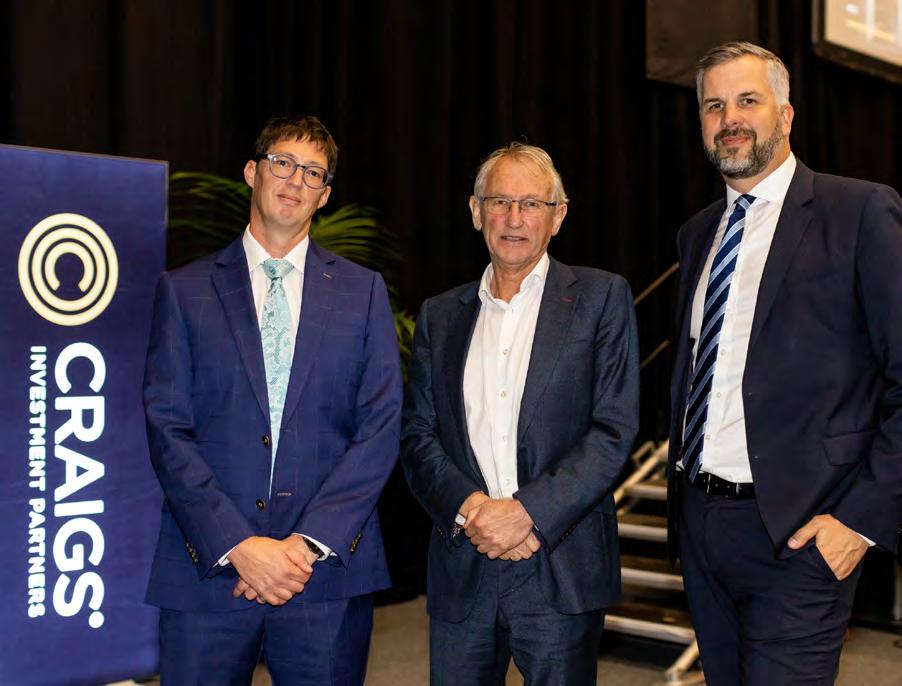
economy is a beast of its own,” Lister said.
“Businesses will do what they do and politicians are only one small part of the scene. So you never build your investment strategy around the political environment.”
Housing a key issue
A key issue for many New Zealanders remains housing, which is continuing to rise.
“I think it will continue to steadily drift higher, although I think from here the pace of gains will slow down. The market has had a big runup in the last 12 months, but there are changes, partly because of the changes you
are seeing on the policy front, which are reducing the attractiveness of property as an investment for many people.”
Lister said that at the coal face advisers were seeing a lot of property investors getting out of the market because it was becoming harder work.
Lister noted that the biggest thing driver of property prices was interest rates.
“The reason property prices have done what they’ve done over the last 30 years is that interest rates have been going steadily lower,” he said.
“Your view on what the property market will do is largely a function of where you think interest rates will go from here,” he said.
“If you think interest rates will stay at current levels for the next five years, property will keep going up. If you are nervous about interest rates and you think we’ve reached a bottom in interest rates, then I would say that’s a head wind to the property market.”
He noted that in the 1970s and 1980s inflation averaged about 12 per cent per annum whereas in recent years in it had averaged about two percent, meaning rates were much lower.
“That is why people in financial markets are watching inflation really closely, because history has told us that a rise in inflation is usually a precursor to a rise in interest rates.”






www.bopbusinessnews.co.nz
PUBLISHER
Alan Neben
Ph: (07) 838 1333 Mob: 021 733 536
Email: alan@bopbusinessnews.co.nz
EDITOR
David Porter
Mob: 021 884 858
Email: david@bopbusinessnews.co.nz
PRODUCTION
Copy/Proofs/Graphic Design
Times Media – Clare McGillivray
Ph: (09) 271 8067
Email: clare@times.co.nz
BUSINESS DIRECTOR
Pete Wales
Mob: 022 495 9248
Email: pete@bopbusinessnews.co.nz
EDITORIAL:
News releases/Photos/Letters: david@bopbusinessnews.co.nz
GENERAL INQUIRIES: info@bopbusinessnews.co.nz
Bay of Plenty Business News has a circulation of 8000, distributed throughout Bay of Plenty between Waihi and Opotiki including Rotorua and Taupo, and to a subscription base. www.bopbusinessnews.co.nz
Bay of Plenty Business Publications 309/424 Maunganui Road, Mount Maunganui, 3116
Bay of Plenty Business Publications specialises in business publishing, advertising, design and print media services.
As a monthly newspaper we don’t usually delve into stories that are likely to be rapidly changing before we go to print. But given the focus of our issue this month is on developments in hi-tech, the problems bedevilling our close neighbours in Waikato did catch our eye.
In addition, members of our staff have been personally disrupted by the chaos that has resultd from the hacking. If nothing else, the latest hacking demonstrates just how vulnerable we can all be to cyber intrusion.
Radio New Zealand has already reported that there is widespread alarm about what might happen to highly sensitive patient and staff information from Waikato District Health Board.
A group purporting to be responsible for May’s cyber attack has emailed some media saying it has personal information of patients and employees and scores of records and documents containing names, phone numbers
When we went to press minister of health Andrew Little was refusing to speak directly on the matter, issuing only a statement saying ransomware attacks were a crime. He has been in touch with the Waikato DHB Commissioner Dame Karen Poutasi about any assistance the DHB requires.
“There is an active police investigation. Other agencies such as the NCNS [National Cyber Security Centre] and the Privacy Commissioner continue to support the DHB,” the statement said.
Cyber experts say the danger is the hackers could sell the data to other cyber criminals, which could then be used to
scam the victims, but whether a ransom was paid or not there was still no guarantee the data would be secure.
National Secretary for APEX Union and the Resident Doctors Association, Deborah Powell, described it as “just low-life behaviour”. Staff at the DHB were already dealing with the stress of the fallout of having the whole IT system compromised, and Powell said “the way we react is important here...”.
Waikato DHB chief executive Kevin Snee said the DHB was constrained by what it could say. “We can’t comment as it’s a matter of police investigation and we are aware that public commentary can be monitored by the malicious actor so we will not be commenting any further.”
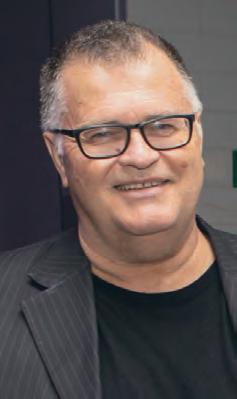
RNZ’s checkpoint quoted reporter Phil Pennington, who has reviewed the documents, said: “It would be a very big exercise indeed to fake something like this, it does appear that they do have sensitive patient information ... there is a lot of it.”
We would respectfully point you to our tech section and urge that you ensure all of your systems are secure.
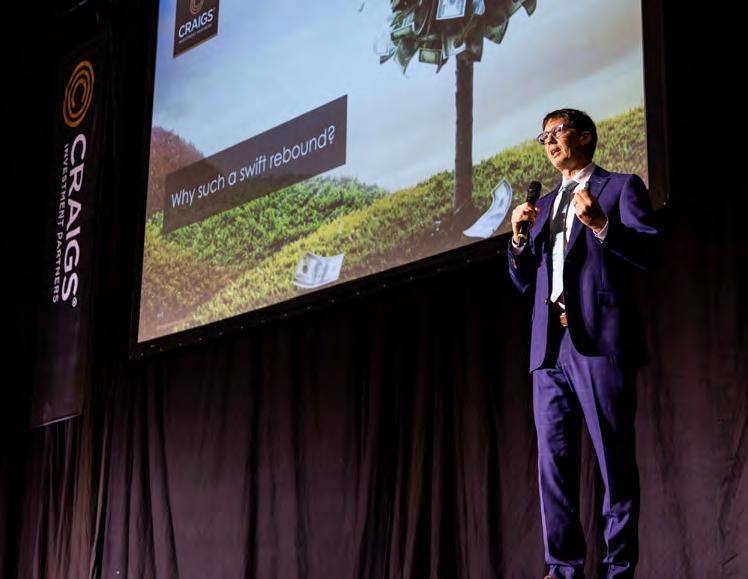

That is why people in financial markets are watching inflation really closely, because history has told us that a rise in inflation is usually a precursor to a rise in interest rates.” – Mark Lister, Craigs IP Craigs draws strong crowd at Trustpower Baypark – p3
The past year or so of Covid-19 has been wild from my perspective.” – Hadleigh Ford, SwipedOn Bay company survives pandemic thanks to global support – p11


Investment market update (for the quarter ended 31 Apr, 2021)

The most significant market move over the last quarter was the jump in longer-term interest rates.
Bond prices move in the opposite direction to interest rates (or bond yields) – when yields rise, bond prices fall (and vice versa). For years (or really decades) bondholders have benefited from falling interest rates, and therefore rising bond prices.
Over the last six months the direction has reversed, with higher long-term bond yields resulting in some of the biggest bond price declines for many years. Shorter-term rates didn’t rise as much, but most bond portfolios would have lost value over the past six months.
For investors who plan to own bonds to maturity, these “losses” on bonds aren’t permanent – holders will still receive the same interest on their investment and be repaid in full when the bond matures (unless, of course, the borrower defaults, generally not a common event).
Higher interest rates reflect the improved outlook
A powerful combination of huge stimulus measures from central banks and governments (literally injecting trillions of dollars into the global economy) coupled with Covid-19 vaccine rollouts has boosted economic activity around the world.
Not all that money has yet been spent. Savings have been boosted in many countries. Today’s higher-than-normal savings could support economic activity in the

future.
> BY BRETT BELL-BOOTH
Investment Adviser with Forsyth Barr Limited in Tauranga, and an Authorised Financial Adviser. Phone (07) 577 5725 or email brett.bell-booth@forsythbarr.co.nz.
The rise in bond yields reflects confidence in an ongoing recovery, but also the risk of higher inflation medium-term. Higher inflation lowers the value of money over time – investors, therefore, demand higher interest rates to compensate.
Inflation remains a key uncertainty for markets. We do expect inflation measures will jump in coming months as (1) prices recover from the falls seen during last year’s lockdowns, and (2) supply constraints and shortages of skilled workers (often due to current migration restrictions) around the world push up costs for businesses, which are being passed onto consumers.
The chief unknown, however, is whether this inflation will be temporary or sustained. Central banks’ current view is it will be transitory, but there is a risk it becomes more entrenched.
Equities continue to perform well
Despite the jump in longer-term interest rates, it has still paid to remain invested in equities. Global equity markets have continued to push higher with
companies generally delivering better-than-expected results benefiting from a combination of improving economic activity and significant cost savings.
A softer New Zealand market the exception
New Zealand equities underperformed major markets over the quarter.
The NZX50 market index is dominated by a relatively small number of companies – the largest eight companies account for around half the index. What that means is any price changes (up or down) in these larger stocks has a significant impact on the overall index. During the quarter we saw falls in some of New Zealand’s largest listed companies, for company or sector-specific reasons, plus a general pullback in defensive, dividend stocks – which dominate the market.
• Clean energy exchange traded funds’ (ETFs) buy high, sell low strategy has caused significant volatility in electricity stocks, particularly Meridian Energy (New Zealand’s second largest listed company) and Contact Energy. For a deeper discussion please see
our Focus article ‘Sleepy Joe causes a power surge’ published on 15 February.
• A2 Milk lowered revenue and earnings guidance for the third time this year. Border restrictions are limiting how much of A2’s product is getting to the key China market.
Cautiously optimistic
We remain confident in a strong global economy over (at least) the next 12 months or so. That said, there are still risks for markets. Asset prices are not cheap by any historical reference, and levels of speculation and exuberance in markets are high. Risks of higher-than-expected inflation and therefore upward pressure on interest rates is higher than it has been for a fair while. These factors mean we do expect future returns are likely to be lower than what we’ve seen over the past decade or so.
This column is general in nature and does not take any of your personal circumstances into account. For personalised financial advice, contact Forsyth Barr for an overview of the services we can provide.
Tauranga-based utility Trustpower has stated that recent results confirm the merits of its recent strategic review.
Trustpower chair Paul Ridley-Smith said the strong performance of each operation reaffirmed the board’s decision to explore the potential sale of the retail business and establishment of a standalone generation business.
“We firmly believe in the growth potential of both the generation and retail businesses. These results confirm that both generation and retail are sound operations that could thrive independently of each other.”
Recent Trustpower developments include:
• The launch of a voice of customer programme to track, understand and remedy pain points in the customer experience journey, as part of a commitment to customer-centricity.
• Successful execution of asset maintenance and enhancements despite ongoing Covid-19 Alert Level changes throughout the year.
• Enhancements at Waipori, Cobb and Kumara contributing an additional 9.5GWh in annual generation volumes.
In January 2021 Trustpower announced a strategic review of its retail business. This review is aimed at testing market interest in the sale of its mass market retail business and exploring the business case for a standalone generation business.
In April 2021, Trustpower announced its intention to enter into due diligence with a number of interested parties to further explore the possible sale of the retail business. At the time of this announcement the process remains ongoing.
Ridley-Smith announced the Board has approved a fully imputed dividend of 17.0 cents per share, as well as a one-off special dividend of 1.5 cents per share, also fully imputed. He said the special dividend was a ‘catch up’ on the previous year, where Trustpower declared a reduced dividend of 15.5 cents per share amidst the uncertainty surrounding the impacts of Covid-19.
Together with the interim dividend of 17 cents per share paid in December 2020, this provides a total fully imputed dividend of 35.5 cents per share for the 2021 financial year. The dividend will be paid on 18 June 2021.
Trustpower said it would look to provide market guidance once the results of the strategic review were known.
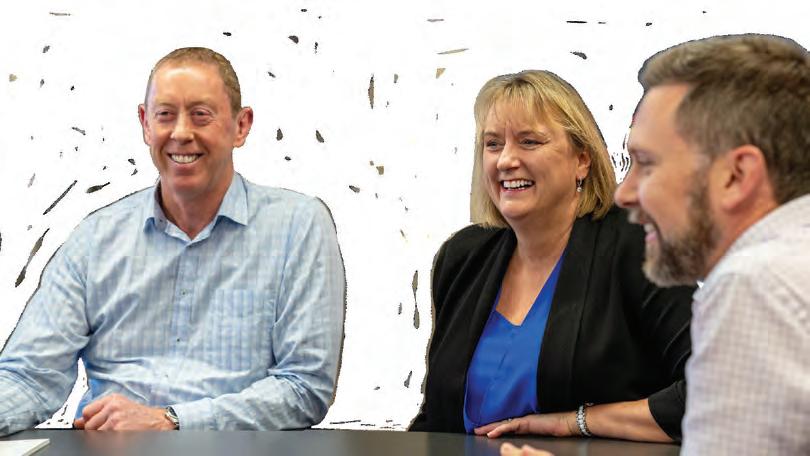
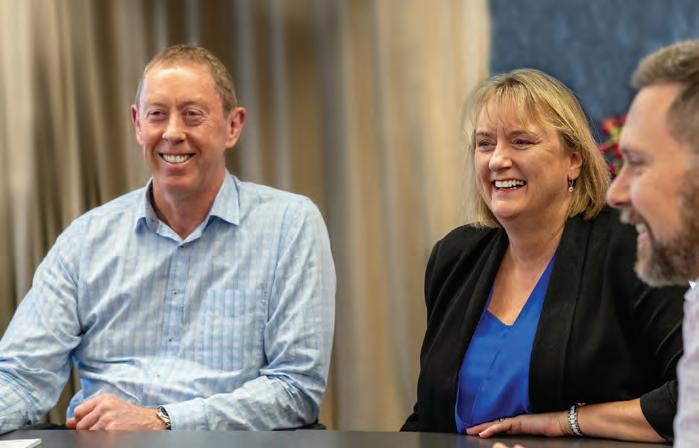

Considering sustainability measures when assessing a company can not only align investments to your values and encourage companies to make positive change, it can also identify risks to the longevity and strength of a company’s business model.
Along with considering their environmental impact, sustainable investing also incorporates a company’s societal impact and how it is governed.
A company that has a detrimental impact on its environment is more likely to have an unsustainable business model. The same goes for one that has a negative impact on society, or that has poor governance practices.
Assessing a company’s sustainability can help align investments to an investor’s set of values. In addition, it can help drive positive change by signalling to companies what areas stakeholders see as important, and where certain issues may need to be addressed. Furthermore, it’s important
for investors to be aware that a company with an unsustainable business model presents additional risks over the long-term.
One of the most common ways of incorporating sus tainability into an investment process is via the integration of environmental, social and governance factors. This is termed ‘ESG’ investing.
ESG investing is more than simply screening and exclud ing companies engaged in certain business areas, such as gambling, fossil fuels or tobacco.
It includes a range of non-financial measures to help identify sustainable and non-sustainable businesses, and those taking active steps to improve the sustainabil ity of their businesses.
For me, the ethical aspect of my investment is really important. I decide what to invest in, but my adviser gives me recommendations along the way and answers any questions that I might have.” – Craigs Investment Partners client
Socially responsible investing is here to stay
Socially responsible investing has gained in prominence in recent years and is anticipated
only pursuing returns.
Gone are the days where the only focus for a company was on maximising shareholder value – a company must now be aware of the



To help clients invest sustainably, Craigs Investment Partners has developed sustainability scores.
“These scores provide valuable information for socially responsible investors, weighing up the key issues and highlighting factors for investors to consider in an easy to understand manner,” explains Craigs research analyst Roy Davidson.
Vanessa Stevens, Craigs quantitative analyst adds, “as an example, when considering a company’s emissions, Craigs looks at how emissions intensive a company’s activities are, what they are doing to lower
their footprint, if they have measurable reduction targets in place, and whether the company is aware of the risks and opportunities climate change may bring.”
Craigs Tauranga Branch
Craigs Investment Partners House, 158 Cameron Rd, Tauranga Ph 07 577 6049 tauranga@craigsip.com
Craigs Rotorua Branch First Floor, 1196 Whakaue St, Rotorua Ph 07 348 1860 rotorua@craigsip.com
When the pressure is on, as it is in incident management – complaints, audits, H&S or R&M – you need assurance the source of your information is accurate, and the reports get generated fast.
By ANDREW TAYLOR
Many businesses put total faith in spreadsheets to manage the entire data flow and communicate their critical information, despite growing arguments against absolute dependency.
The result is putting up with cumbersome, at times error-ridden, reporting, analysis, scheduling, graphing, inventory, budget tracking and project management. Add in individual habits, from version control to formula creation; the outcome is near impossible to audit. Fixing a broken spreadsheet is a manual, tedious nightmare.
lieve there is a way to rein them in. When faced with an incident, if not using spreadsheets for converging all the critical details, then what are the tools for tracking, response, and control?
Integral’s compliance register application, ICRA, gives the ability to have that one source of truth. Schedule and monitor workflow by company, site and team members via dashboards and emails. Trace issues by category, product and production batch. Attach documents, photos, investigation and close out details to the incident.
There’s potential to integrate with ERP, Production, CRM and other
Another package, ShareIT, is designed to simplify the process of managing multiple shareholders associated with Māori trusts, private companies, and co-operatives. Often the information is held within multiple spreadsheets becoming unwieldy to keep up to date. With ShareIT, payments of dividends are hassle-free and quick. Share transactions are traceable, standing up to scrutiny of auditors. Automated AML checking at the click of a button saves time and effort. The electronic document storage ensures those all-important shareholder documents are safe and all together. At Integral we are intent on de
how taking your current spreadsheets and loading them into cloudbased applications will smooth business process and take a load off your mind.
Connect with Integral – phone us on 0800 002 555.
Upcoming events:
Integral have been at the forefront of forest software development in New Zealand and Australia for over twenty-five years, much of that time through its Atlas Forestry Product Suite. We are looking forward to the Carbon Forestry21 conference in June. As well as a great opportunity







Some of the best-known franchise brands, and nearly every international franchise brand in New Zealand, will actually be master franchisees operating under a master franchise agreement.

> BY NATHAN BONNEY
Nathan Bonney is a director of Iridium Partners. He can be reached at nathan@iridium.net.nz or 0275-393-022
he holder of that agreement – the master franchisee, has the rights to operate and develop franchise business units themselves, and or to develop a territory and appoint sub-franchisees under that brand and system. Master franchise agreements can be regional, such as a province, or national.
What are the benefits of purchasing a master?
services.
Two additional and significant benefits of acquiring a master versus developing a franchise are the speed to market and the lower establishment and ongoing development costs.
The franchisor may develop products, services and systems and the master will have access to these as part of their agreement, again most often faster and at a lesser cost than developing themselves.
locally customised or developments to the intellectual property.
There are of course ongoing fees that need to be repatriated to the franchisor. These need to be carefully assessed to ascertain whether the model is sustainable for each of the parties, franchisor, master franchisee and potentially sub-franchisees.
In the case of importing international brands or systems, how appropriate is it
Two additional and significant benefits of acquiring a master versus developing a franchise are the speed to market and the lower establishment and ongoing development costs.”

Who would a master franchise suit?
Who is likely to acquire a master franchise, and or who is best suited to acquire and operate
already operate.
The second two groups are less prevalent in the New Zealand market, but I am going to suggest them as the franchise sector develops and matures
ongoing fees from the sub-franchisees without having to allocate the resources to developing and operating the business unit.
The last group of potential master franchisees, and again
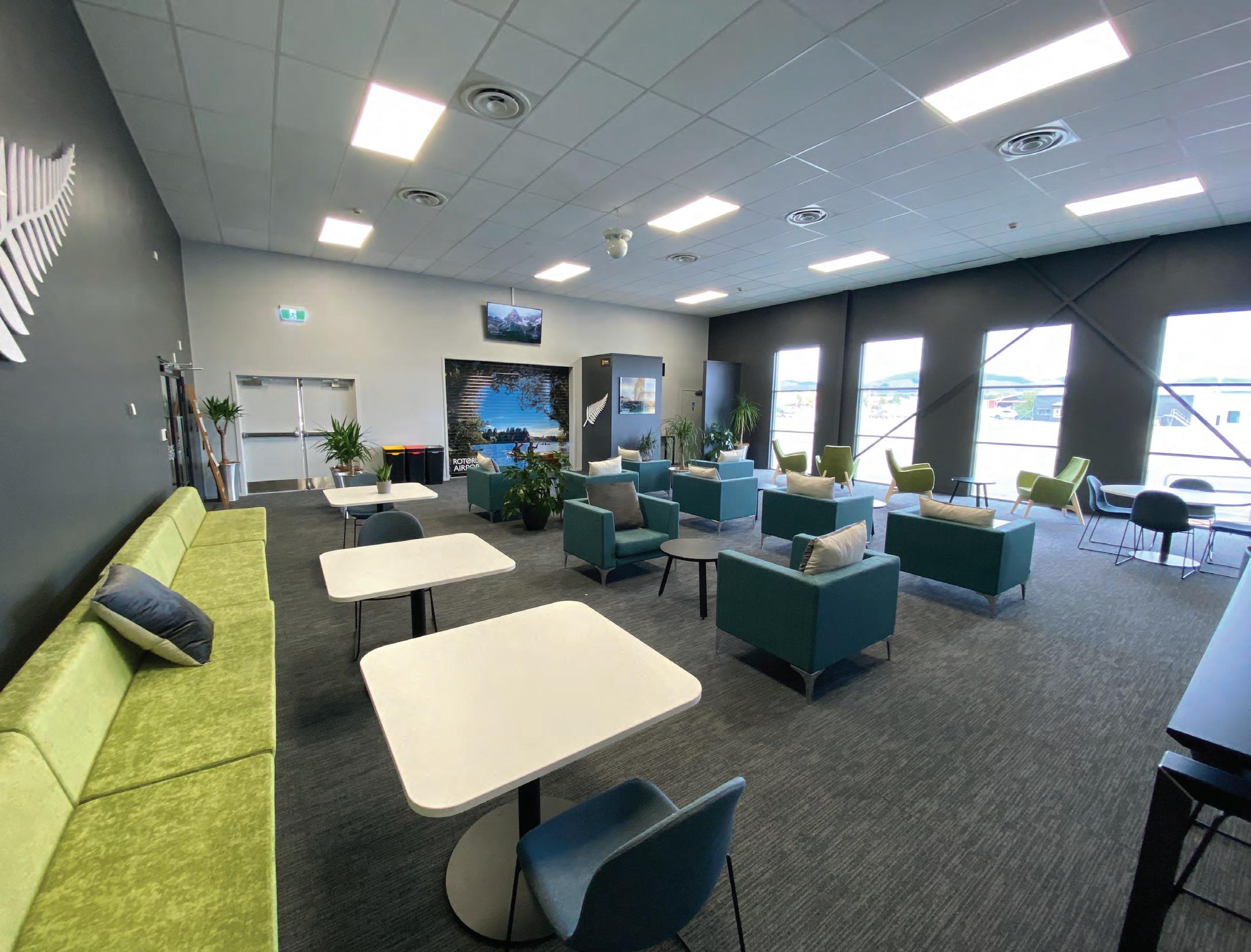
Even an instinct as primal as eating has been transformed in the modern world of our luxury lifestyles.
While ‘fish and chips
Friday’ has remained a weekly NZ gastronomic constant for generations, progress moves even our trademark takeaway staple relentlessly onward.
Although we can now upscale to bluenose dusted in a light, tempura crumb batter cooked in hand-crafted, nonallergenic low-fat virgin Himalayan soy bean oil, accompanied by laser-cut organic pommes de terre curly flat wing chiplets avec zesty mayo jus, in essence the humble fish and chips meal remains fundamentally unpretentious (with the exception of the above varieties).
Fish is still fish, and chips are still chips – the newspaper wrapper might no longer be readable, and the accompanying Fanta might now be a replacement low-carb, nonsugar drinking medicine, but the smell of freshly cooked fish and chips still makes me say, ‘yes please’.
So, too, the meat pie. Although the full range of pie experiences has been expanded from two choices –potato top and mince – to 202 options, including octopus and
lamington curry, and vegetarian beef and kale hotpot … mmmmmmm … a meat pie is still, at its most simple, a meat pie. But beyond the pie and the fish and chips, life has certainly changed, gastronomi cally speaking.
As you will no doubt have noticed, I’m prone to regularly walk down the ‘when I was young’ road in this column. Today is no exception. For comparison pur poses I recall – less than fondly – when Chinese gooseber ries hadn’t been trademarked, ‘re-specied’ and fully commodi tised and an avo cado was considered too exotic for the aver age Kiwi palate to contem plate – not that the average Kiwi palate could actually find the aforementioned fruit to buy and then contemplate anyway.
school lunches and they don’t even care that the fish is not cooked – what is the world coming to?
I’m not even going to talk today about supermarket psychosis – that most recent of my

> BY ALAN NEBEN
Alan Neben is a Mount Maunganui local and experienced New Zealand publisher. He now regularly works from home. alan@bopbusinessnews.co.nz
will keep for another column. But I am perplexed by the bewildering plethora of healthy eating signposts at modern restaurants directing me to a longer life, a healthier

Olives were married to sailors and pistachios would break your teeth when you tried to chew them.
Fast-forward to 2021. The kids order sushi for their
I’m going to try and eat more leafy greens and drink more water. But I’m not giving up fish and chips on Fridays and a mince pie occasionally when I’m in recovery.”
sex, elevated karma and a generally more radiant aura. The average restaurant menu is now increasingly dotted with letters that I don’t understand; In much the same way that LGBT evolved to LGBTQQIP2SAA while I was away for the weekend, the average restaurant menu now contains an alphabet of specifiers next to every second menu item – V, V+, O, GF, NF, ND, FT (vegetarian, vegan, organic, gluten-free, nut-free, non-dairy, free-trade) etc. This can be quite annoying when all you want to do is check if the salad comes with chips.
Pectarian surprise
When a good friend recently announced he was now pescatarian, I offered my condolences and asked if he was seeing a specialist.
Suffice to say, I am trying my best to ‘keep up’. Interestingly, I have noticed that my friend does have a spring in his step now – slam dunk case closed irrefutable proof that he
Mackenzie Elvin Law welcomes Jason Bywater-Lutman to the partnership. Jason will be formally admitted to the partnership once New Zealand Law Society regulatory approval requirements have been finalised, making a seven-strong team of principals. The appointment confirms the firm’s commitment to building a strong intergenerational practice.
Jason is passionate about helping Bay of Plenty locals achieve the best legal solutions possible in his areas of speciality – property, development, construction and wider commercial law.
Mackenzie Elvin Law Senior Partner Graeme Elvin says Jason will be a great addition to the partnership, and his appointment has come at an important time for the firm. “It’s not only about outstanding people, for us that’s a given, but
also the need for extensive legal experience.
“We’ve seen a rapid growth in the Bay of Plenty and Jason is excited to use his expertise to help shape the region now, and in the future, and I’m looking forward to seeing him flourish in the Mackenzie Elvin environment,” he says.
Jason, who has close to two decades of law experience, is proud to call the Bay of Plenty home. He settled in Mount Maunganui in 2014 with his young family, following stints practising law in Auckland, the United Kingdom and Wellington.
“The Bay’s thriving property and commercial sector has created unparalleled growth opportunities. I’m proud to be part of the region’s development and to help clients obtain excellent outcomes in their endeavours.
“Joining the successful and well-established partnership at Mackenzie Elvin Law gives me the chance to offer clients customised and full legal services with an exceptional team behind me,” says Jason.
The appointment of Jason follows the recent promotions of Rebecca Savage and Thomas Refoy-Butler to partners. These three, along with partner Tom Elvin, make up the second generation of partners at the firm.
Mackenzie Elvin Law is committed to being ‘the best on the ground’ recognising that law isn’t above anyone – it’s for everyone – and that’s why the local business has a reputation of not only strong legal competence but also approachability.
For more information: www.mackenzie-elvin.com
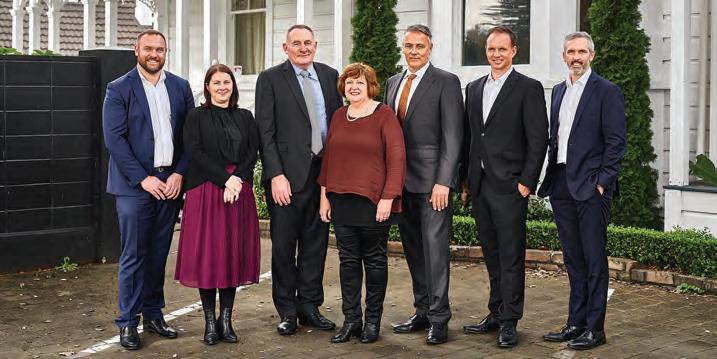
is having a mid-life crisis. Or maybe it means the pescatarian diet is working. Hard to pin down the cause and effect with any certainty, but he’s a believer, so I guess that’s ultimately all that matters.
So, are the advantages promised by my local pizzeria’s menu superscript annotations coming true? Are we healthier, happier, having better sex and living longer?
Well, here’s the thing –while we seem to have more cures, we keep discovering more diseases.
While we keep practising deeper mindfulness thanks to our life coach’s top ten yoga hacks, we seem to need the therapy more and more.
The sex was already good until the internet showed me it wasn’t.
And while the wealthy seem to be living for more years, are they really ‘older’, or are their regular length lives just being chemically elongated?
I’m going to try and eat more leafy greens and drink more water. But I’m not giving up fish and chips on Fridays and a mince pie occasionally when I’m in recovery.
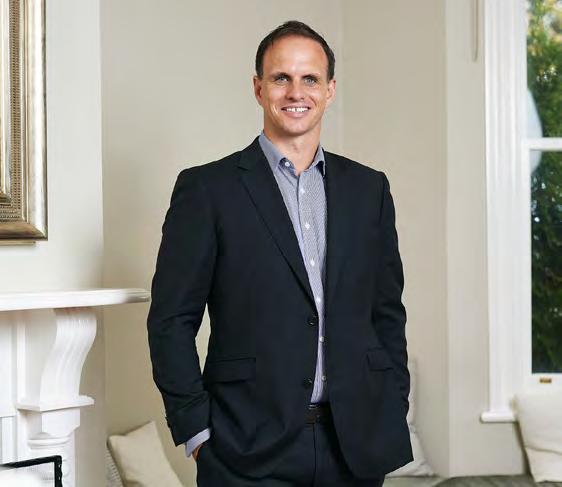


ENVICO:
NZ drone company flying high
SWIPEDON:
Responding quickly to market changes
LAWVU: Software firm puts legal teams first ARRON EDWARDS: Explore your tech future
TECH TALK – with TS –

By RICHARD RENNIE
Bay of Plenty agritech startups stand to be among many of the firms to benefit from the first milestone to be achieved from the sector’s Industry Transformation Plan (ITP) announced last year.
One of the plan’s key goals was to develop a venture capital fund targeting agritech startups wanting to advance to a commercial stage. The agritech ITP was the first of several planned by government, due to also include tourism, forestry and food sectors.
Brendan O’Connell, Agritech NZ chief executive announced to Bay of Plenty agritech firms late in April the launch of the Finistere Aotearoa Fund as a $42 million source of capital. The fund comes with the backing of the NZ Growth Capital Partners and San Diego-based Finistere Ventures.
Critics of New Zealand’s agritech sector, which generates $1.2 billion of export income a year, have cited a lack of pathway to commercialising startups as a major roadblock to the sector’s growth.
New Zealand is often compared to Israel, with a similar population, but an agritech sector generating ten times the amount of export earnings. But O’Connell says the funding market for agritech in New Zealand has matured significantly in recent years, with the full spectrum of funds now available from angel investors sparking startups, growth phase and commercial pathway funding.
Tauranga is increasingly being recognised as a hub for angel investment funding with Enterprise Angels for example providing funding for 60 early stage startups to the value of $24 million since launching 10 years ago.
“Companies like (BoP based) Robotics Plus need to be celebrated for the ambitions they have got, and the funding support they have managed to get,” said O’Connell.
Robotics Plus secured US$10 million of funding in 2018 from Japanese robotics giant Yamaha to help further develop its orchard automation equipment. “It is a very different business model
to what we have seen before in New Zealand, with the exception of Xero.”

Fund sources now included well-backed operators such as Pacific Channel, which has placed in excess of NZ$50 million of early-stage funding into 27 New Zealand startups through 50 capital raises.
Pioneer Capital has invested in 23 businesses with funding aimed at businesses already managed by capable operators wanting to expand into larger international markets, typically between the $10 million-$50 million range. “Where there used to be holes there are not holes now.”
Increasingly then the challenge was to, like a dating process, match the right investors up with the right agritech startups.
PROGRAMME
O’Connell says this is where the Sprout Agritech was invaluable with its Accelerator programme. This aimed to expose startup personnel to
Refining the pitch, having the business plan challenged and working closely with mentors helped ensure neither party wasted each other’s time in determining their suitability.
Overall O’Connell is optimistic about New Zealand’s status as an agritech hub, having moved into ninth place globally recently for startup potential, and recognised as a regional leader.
One other outcome of the industry ITP that local tech firms had pinned some hopes on was the development of a robotics academy in Tauranga, leveraging off work done by University of Waikato and Robotics Plus.
But O’Connell – who took over the job a year ago – says this had been revised when it was realised the expertise sat not only in the Bay of Plenty, but around the country, and it would prove more effective to develop a better network from the resources already in place nationally.

AdviSME combines AI-driven technology and leading experts to provide SMEs with a tailored legal service, at a fixed price.




Free smart legal documents and low cost premium documents using our AI-driven chatbots.
24/7 access to our legal resource library, free downloadable guides and legal tips.
Free business healthchecks to easily identify any red flags that might be hiding in your business.



By DAVID PORTER
Sam Vye and Cameron Baker set up Bay of Plenty company Envico Technologies two and a half years ago to develop tech for conservation. After some world firsts with drone technology and becoming well known for “big drones” both domestically and internationally, the partners have also recently started Syos Aerospace.
“The vision is to become a world-leading drone manufacturer, specialising on heavy-lift utility drones,” said Vye. “By 2024 we aim to have a production facility in the Bay producing 200 units per annum, exporting 95 percent to target regions, tapping into a projected $45 billion market.”
The company plans a Series A investment round at the end of 2021 to facilitate this growth. According to the company’s mission statement, the aim is to develop pioneering technology solutions for environmental sustainability.
“Our purpose is to identify and develop suitable solutions that can overcome our present problems that negatively impact our environment. Whether that problem is detecting invasive species, effective invasives control or deforestation. We are focused on practical and viable solutions for every problem we set out to solve.”

Vye said the company decided to set up a manufacturing business in the Bay to develop the drone platform, and to become a certified aircraft manufacturer.
According to Vye, the response to the company’s products has been huge. “It will most likely be more of an international market, but there will be some domestic sales,” Vye told Bay of Plenty Business News
As noted, the company is expecting around 95 per cent of its sales from abroad – markets such as the US and Europe and Asia.
“There definitely is high interest in New Zealand, but we don’t really have competition in the class we’re in, anywhere in the world,” said Vye.
He pointed out that any company that starts off in New Zealand most likely they will be doing more overseas than domestically simply because of the sheer size of the available markets overseas.
“The response has been huge,” he said. “The attraction has been because we’ve developed a product that is highly practical and not just based on aesthetics or just to get the investors
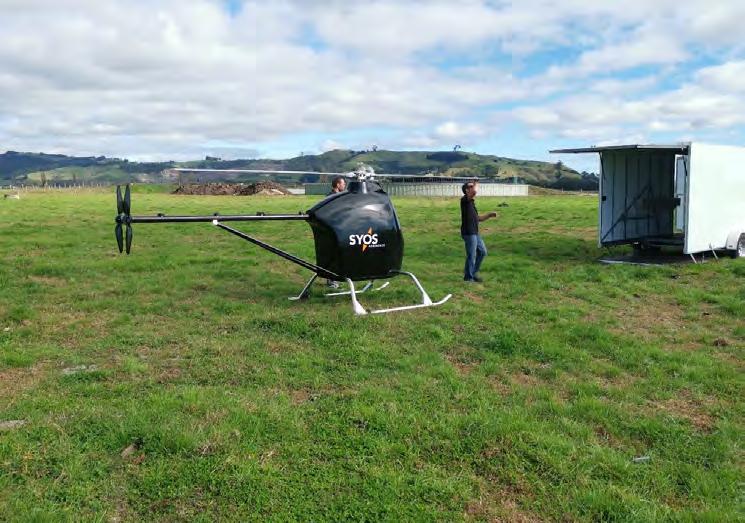
interested. We’ve actually developed a product we would like to use ourselves.” “We don’t really have competition in the class we’re in anywhere in the world,” he said.
Vye said that one of the requirements of the
By DAVID PORTER
For Bay of Plenty company SwipedOn, as for many others, dealing with Covid-19 hasn’t been easy. And as an ex Ship’s Captain on container ships, cruise ships and superyachts, Hadleigh Ford isn’t your standard tech entrepreneur. The idea for SwipedOn came when he noticed that they still used a standard paper visitor book to register guests on his ships, and the realisation that a digital solution would offer their guests a vastly better experience.
SwipedOn is a company that has gone from a tech startup to a global-leading visitor management system, with clients that include Bayer, Disney, FedEx, 3M, Krispy Kreme, Gate Gourmet, Bosch and Skyscanner.
SwipedOn is a cloud-based iPad application that replaces paper visitor books with an elegant and simple tech solution. Founded by Ford in 2016, the company experienced rapid growth within its first two years of operation.
GROWTH COMPANY HERITAGE
In 2018, SwipedOn won the Callaghan Innovation Growth Grant, was nominated as finalists in the NZ Hi-Tech Awards for start-up of the year, and was sold to British based Smartspace Software PLC. 2020 saw another year of growth for SwipedOn and the company diversified and expanded on their product offering in response to the Covid-19 pandemic, to include solutions for workplace screenings and contact tracing among other functionalities.
SwipedOn is unique in that over 80 percent of their business is international and their biggest markets are the UK, USA and Australia. “The past year or so of Covid-19 has been wild from my perspective,” Ford told Bay of Plenty Business News.
“We had a global audience so perhaps saw the impact faster than most in New Zealand. Our customers were either closing up or working
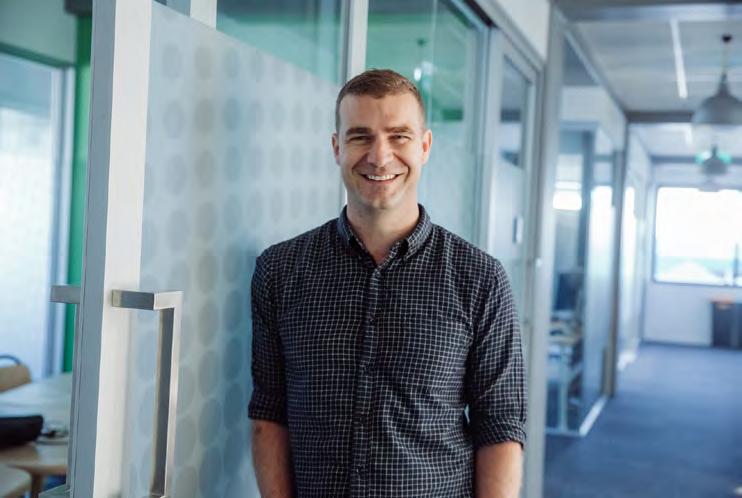
from home. Or they had issues using a touch screen device because of the potential risk of cross contamination. So our fundamental business model was in question in question at the same time that many global economies were falling over. So yes, that was quite a torrid time.”
However, Swiped On responded, putting its team together for a brainstorming session to explore alternative ways of operating.
As the pandemic got underway they shifted the entire app from iPad to contactless in a matter of weeks, introduced visitor screening questions and provided training in using the app for contact tracing. Ford’s visitor management system eventually saw huge growth due to a global demand for visitor screening and contact tracing.
Developed during the height of the pandemic in response to real-time needs, SwipedOn’s new
products include: contactless workplace sign-in, visitor and employee screening questions, a dedicated employee sign-in app, contact tracing and SwipedOn Desks – a new feature for shared workspaces.
Contactless sign-in
● Contactless sign-in allows visitors to smoothly and safely sign in and out of the workplace using their own mobile, eliminating the need to touch a communal device.
SwipedOn Desks
● SwipedOn Desks helps utilise shared spaces effectively, optimising operational costs, and offering greater control over workplace health and safety policies. The new feature allows administrators to manage hot desks, agile or activity-based working environments, keep track of office occupancy, and even set resources as unavailable to help ensure effective social distancing.
SwipedOn Pocket – employee companion app
● SwipedOn Pocket is an employee companion app that helps facilitate a risk-free workplace via a contactless sign-in experience for staff using their Android or iOS smartphones. The app includes screening questions and employee movements are logged - giving a full oversight of who is in the building at any one time.
SwipedOn Proximity
● SwipedOn Proximity offers verified on-site sign-in for employees by alerting users through the pocket app that they are within a predetermined radius of the workplace, prompting them to sign in.
Visitor and employee screening questions
● Businesses can easily screen employees and visitors by asking them custom yes/no questions to determine if they are a safety risk to the workplace.
Contact tracing button
● The ability to contact trace has always been possible with SwipedOn, but it used to be a manual process. In the recent product update, contact tracing has been transformed into an automated process. It now has the capability to alert users who could have had contact with an individual who is later deemed high risk.
Ford said new owner Smartspace Software PLC had been consistently supportive and SwipedOn was able to push into new market segments. It also helped, he said, that SwipedOn had developed quite a “tail wind” that helped it to rally support from old and new customers.
“We’ve had quite a significant customer base we’d managed to build products for, to help us ensure growth with the business,” said Ford.
“Our buyers have been extremely supportive.”


By CRAIG HUDSON
I was recently asked, how do you balance looking after your people with the need to deliver commercial value? Simple – these two things are not mutually exclusive. You can be successful in business without compromising your ability to be human.
I go by the adage, “where focus goes, energy flows”. If you can focus on the building blocks of success, such as developing your people, instead of success alone, then success will follow. I believe people are the most valuable resource in a business and should be the core of everything we do.
The Xero leadership team went down to Waihi recently for a planning session, and there I met with Jason and Leah from SMYD Chartered Accountants, who were a finalist in the Small Partner of the Year category in the 2020 Xero
Awards. We had a kōrero about wellbeing and the impact of this on business.
When he and his wife Leah started their accounting practice, they had one major focus in mind – a better lifestyle and ultimate wellbeing for themselves and their family. Now that they have expanded to a larger team, they have kept employee wellbeing top of mind – allowing staff to work flexible hours, and remotely from home -–meaning they can all put their family and lifestyle commitments first, and work around those.
Jason said by putting their people first, they have built an extremely loyal, motivated and engaged team who really care about their clients. And in turn, they’ve seen exponential business growth.
In fact, they’ve never needed to advertise SMYD’s services because word-of-mouth is so powerful for them. And I believe that comes down to focusing on the fact that people and

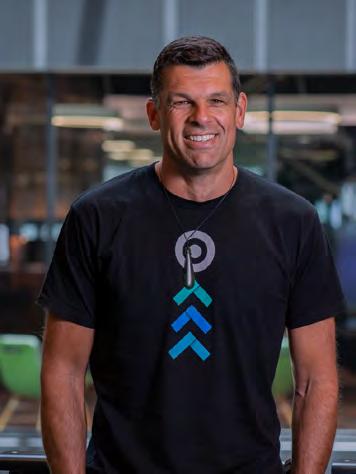


Effortlessly manage your workplace environment
Easily locate and book desks on-the-go
Book/reserve desks in advance
Control office capacity
View occupancy and history
Locate key contacts such as fire warden or first aider
Stress free desk allocations
Customised to fit your needs
Request your free SwipedOn Desks demo today
www.swipedon.com/desks
their wellbeing are at the heart of their business.
Looking after your people’s wellbeing should be a priority for small business leaders. If you’re not convinced, let me give you the business case. Research commissioned by Xero and conducted by the New Zealand Institute of Economic Research (NZIER) shows that for every dollar invested in organisational wellbeing, employers can get up to $12 back.
This return comes from avoiding the negative impacts of poor wellbeing, by creating a positive culture in the workplace that supports the physical and mental health of staff. It doesn’t need to take a lot of time or money. It can be as simple as having one-on-one conversations with your team to get to know them better.
Taking an interest in their lives – and sharing more about your own – will help build a more open and trusted environment where people feel comfortable sharing things with you.
Tauranga-based Software-as-a-Service (SaaS) company SwipedOn, went from tech startup to offering a world-leading visitor management system with major multinational clients within five years.
With the initial intent to replace the paper visitor book, enhance data privacy and create a streamlined workplace, Covid-19 delivered a true test of their ability to ensure the product would continue to evolve amidst a rapidly-changing global environment.
Now, SwipedOn is helping over 7000 businesses in more than 70 countries return to work safely with features which help with Covid safe compliance and so much more.
SwipedOn’s latest Development, SwipedOn Desks is proving to be a useful tool for businesses across the world as they begin to reopen their doors post-pandemic.
SwipedOn Desks offers a smart and simple approach to workplace management. Businesses which are interested in keeping employees safe at work through social distancing, or those who are operating a hybrid workplace, will love the agility of the cloud-based platform.
SwipedOn Desks offers any sized business the ability to manage their shared desk

spaces from a central application; helping to utilise shared spaces effectively, optimising your operational costs, while giving you greater control over implementing your workplace health and safety policies.
It’s the perfect fit for workplaces in need of a solution to control office capacity, view occupancy and history and operate a hybrid workplace effectively. Office zones or individual desks can be booked out to accommodate the rotation of teams and individual employees alike.
Desks can be booked easily by an admin or by employees on-the-go on their smartphones. For effective social distancing, desks can be flagged as unavailable by the admin to prevent these from being booked.

By RICHARD RENNIE
Tauranga legal software company LawVu has been quietly building its client base, capacity and staff numbers in its central city offices as it looks well over the horizon for more business opportunities.
Founded by Sam Kidd and long-time local resident Tim Boyne, LawVu is a suite of software services aimed at increasing the productivity of in-house legal teams in large corporate entities and multinationals. The company was recently nudged into the national limelight with the announcement in early May that it has done a deal with a large, but as yet un-named social media company.
LawVu was born in 2015 when Tim Boyne took his 10 years’ experience working in the IT team for local legal firm Sharp Tudhope and joined with Kidd who had experience in a project management software startup.
“My experience at the law firm was that at the end of every month pulling together all the reports for the big company clients,” SAID Boyne. “It was incredibly painful on our side, and had to be repeated by the client. I thought there had to be an easier way to keep track of things.”
‘GO TO’ PRODUCTIVITY TOOL
Partnering with Kidd and being able to apply his experience from his project management software saw them develop what is becoming the “go to” productivity tool for in-house counsel.
The pair’s big break came when they landed
Telstra as a client in Australia, a company with the largest in-house legal counsel in the Southern Hemisphere. Funding to expand has come from local investor Craig Wearne who liked the idea from the get-go.
LawVu recently secured $2.5 million of funding through a convertible notes offering, run by Australian venture capital company AirTree Ventures, supported by NZ Growth Capital Partners.
“Generally funding has not been too great an issue, we have always been able to convince investors about the value of what we are offering firms, and really it has been more of a case of waiting for the market to catch up to the idea,” said Boyne.
Boyne said the legal counsel sector has been largely unchanged over the past 20 years and has missed out on many of the digital productivity tools other sectors have benefitted from.
“For example, 15 percent of lawyers are tracking contractual obligations and deadlines on PostIt notes. Feedback we get is that having LawVu has helped significantly reduce wasted time for mundane tasks like document searching, meaning teams can focus on more higher value projects and activities.
“One city council saved 40 percent on their expenditure on outside counsel spend, while another firm’s team of lawyers saved an hour a day each by not having to search for documents in the usual way.”
The company has found Australia a good starting point as an overseas market, with firms generally
• $1b total investment in mobile and broadband offering
• Ericsson announced as 5G partner for 2degrees bring world-class expertise
• 5G network build to launch in late 2021
One billion dollars. That’s how much 2degrees has invested in its network since the telco opened its doors in 2009. And with the recent announcement of Ericsson as its 5G partner, 2degrees will offer even more to Kiwis from late 2021.
2degrees Chief Technology Officer Martin Sharrock says many Kiwis will be surprised to learn how far the network has come, with most still having fond (though out of date) memories of 2degrees as a start-up.
“Most Kiwis are unaware how much we’ve grown. We have our sights set on delivering New Zealand’s best 5G network, on top of the $1b we’ve already invested in our nationwide mobile and broadband offering.
“We started replacing the core of our network in 2020 and we can now accelerate the build out of 5G with planned upgrades to existing sites. Ericsson is a global leader in mobile communications technology, and they will help us to bring New Zealanders a world-class 5G
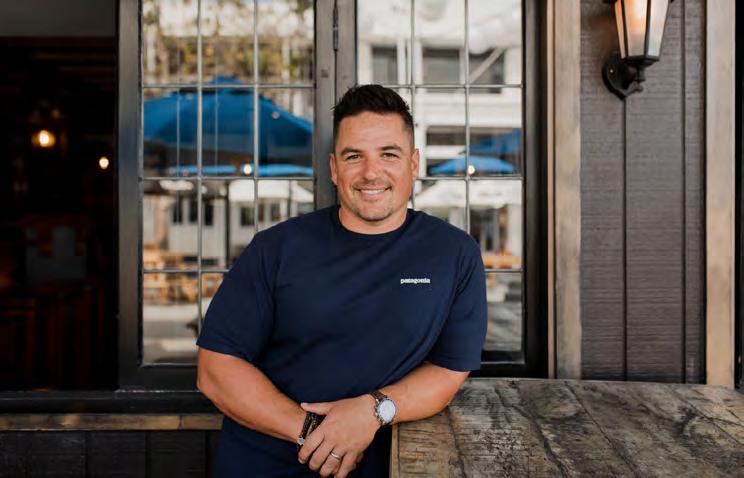
being larger and two to three years ahead of their New Zealand equivalents in adopting new technology. But New Zealand clients include not only the big players of Zespri and Fonterra, but also LIC, Sky and Harcourts.
Last year despite Covid’s disruptions the company tripled its revenue and will be looking to further capital fund raising later this year in the US$10 million range as it continues to expand its Tauranga office base from its current 30 staff.
Boyne says if he had one wish for Tauranga city, it would be to see more of a hub develop around
a cluster of tech-focused firms, helping reduce the region’s reliance upon its physical resources.
“You need good companies to attract good people, particularly as more and more people have spouses, who may also wish to work here coming with them.”
Now with 70 staff spread around Tauranga and the world in offices in the US, Ireland and Australia, Boyne said there was no constraint being based here, and no plans to leave the city. Australia is currently the company’s largest market, but the US beckons and the company is intent on becoming the “go to” option for in-house legal teams around the world. “We are all about landing and expanding at this stage.”
network,” says Mr Sharrock.
“We’re excited about 5G and we’re aiming to have our first sites live in Auckland and Wellington during 2021. The network will expand to the other main centres, with plans for 700 sites.”
In addition to enabling the 5G network build, partnering with Ericsson will allow 2degrees to double its current 4G capacity and provide an event better customer experience, backup up by 100% Kiwi-based customer care.
“To be able to evolve our network to 5G, we’ll also be getting in and replacing the heart of our network so every one of our mobile customers will benefit,” he said.
Sharrock was keen to point out other improvements to the 2degrees 3G / 4G network and said a myth he is keen to bust is that old fashioned idea that 2degrees still uses a competitor network to top up its services,

which is no longer the case.
“Our new infrastructure agreement was signed last year and roll out of that is just wrapping up. It signals the end of the idea of roaming and will ensure all our customers will receive ‘the full 2degrees experience’, especially in rural areas or on regional roads.”
That means that with almost 1800 sites, the 2degrees mobile network now covers 98.5% of places Kiwi’s live and work.
The network was recently rated first for ‘most responsive network’ and first equal for its ‘excellent consistent quality’ by Tutela.
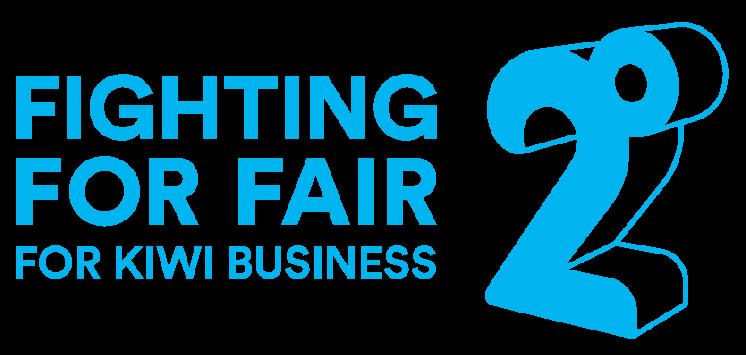

When we think of technology, we often think of the devices, applications and systems we use daily, to simplify our lives and keep us connected to the world. We view it as the means that drives innovation, productivity and efficiency. And we have become so accustomed to it being readily available that the standard thought is simply “it just needs to work”
The accelerated growth of technology has provided a platform that profoundly impacts a business’ daily operations. From automation and productivity to communication and collaboration. With advancements in tech, SME’s can level the playing field with larger organisations. From most aspects, technology is exciting. It opens doors, streamlines processes and provides tools to scale our business. It literally put’s the world at our fingertips. And when we have the right hardware, systems and software in place, our business can be limitless.
But what happens when the tech we so heavily rely on, doesn’t work? What if your business was to lose access to all your data and systems today? What is the cost to your business if you have a total IT blackout for 8 hours, or a week? And more notably, have you given thought to what the severity of disruption and reputational damage to your organisation would be in such an instance? If 2020 taught us anything, it’s that, a solid network infrastructure and IT platform is pivotal to a business’s success.
The everchanging landscape of IT and the intensifying topic of cyber security requires a careful and considered approach and up to date
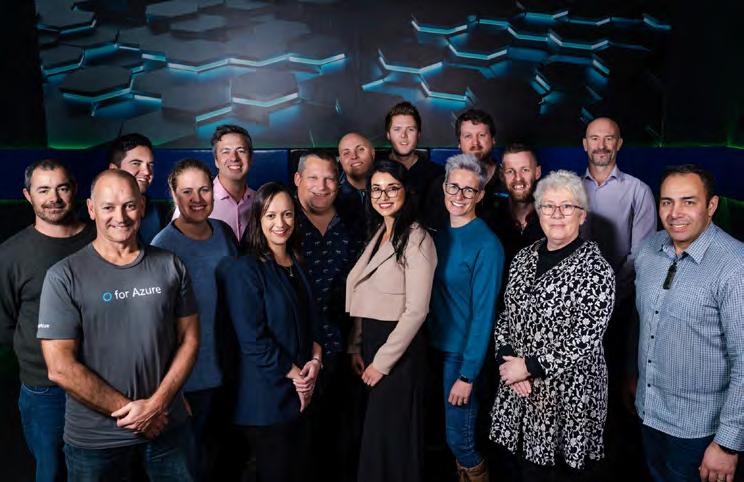
knowledge of advancements, which is where the advantage of having a Managed Service Provider comes in to play. Your MSP should act as an extension of your team, provide great value, and help your organisation succeed. Choosing the right MSP to partner with, helps shape the future of your business, so it’s important to know what to look for.
Stratus Blue is a local MSP – we embrace the
mindset of “Perpetual Beta” a term that is used to describe an organisation that operates with a strong feedback loop between customer and organisation. Our internal philosophy is based on the idea, that to become the leaders in our industry, we need to be continuously listening, learning and adapting. So, we frequently ask ourselves: “are we meeting that benchmark of a great MSP?”
Like most service businesses, our “benchmark” is set by the needs of our customers. Organisations choose to partner with us because we provide a

solution that meets their needs. We understand that as a partner to our clients it is our duty to provide them with experience, expertise, the latest tech knowledge and resources that allow for greater accuracy and reduced risks and liabilities. We want our clients to be able to focus on their core business - such as direction, strategies, and growth while we ensure they have the best practice IT framework in place.
Above all, we foster the care for our people. Both internally and with each business we are engaged with. We believe what sets us apart, are the PEOPLE that make Stratus Blue, and the culture of genuine care and connection for the businesses we partner with. It has enabled us to become a business that grows organically, through referrals and reputation.
We are humbled at the support we get from many notable organisations who put their trust in us, it is their feedback and success that drives us to strive for continuous improvement, and to never stop asking ourselves “What makes a good MSP?”

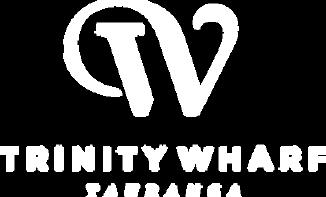







Cyber Security. Those two words seem to be on repeat. Everywhere we turn in the tech space, this topic, albeit being discussed extensively, just seems to get hotter.
Last month saw the Waikato DBH fall victim to a “war” it didn’t see coming. Theory is, an email attachment was opened, and if so, one click, was all it took bring five hospitals to their knees. Employees were underpaid or not paid at all, cancer patients were shifted to other regions, procedures that required digital imaging were rebooked and doctors were pushed to rely on hard copy records and whiteboards to commence treating patients.
The extent of damage and the cost to the government and insurance companies are still to be determined as experts weigh in, that the “war” is far from over. As cyber security heroes work tirelessly to put out the “fires” the looming fact is that even once all workstations and software are restored from backups and systems are up and running, the risk of all patient information being released online is still very real.
Simply put, a large government organisation was infiltrated by hackers with one motive. Money. According to a recent cyberwarfare report, by 2025 cybercrime globally will cost businesses USD$10.5 trillion annually. And if the theory of human error, one small moment of misjudgement, a single motion of a finger on a mouse, is what’s to blame. It reinforces, that without a doubt,
alongside health and safety, cyber security and awareness should be the top discussion points on every businesses risk register.
At times this topic brings about the sense of scaremongering, with businesses of all sizes still embracing the approach of “she’ll be ‘right” or “there’s no reason for us to be targeted”. In fact the above comparison to a “war” might seem excessive to some. But there are staggering stats showing that over 50 percent of businesses across all industries in NZ were successfully targeted by a ransomware attack in the past 12 months, and one in five of those businesses stated the attack caused serious disruptions to their operations.
CYBER SECURITY SHOULD BE A PRIORITY
It raises cause for alarm that when in discussions with many business owners and decision makers Cyber Security still does not rank as a priority. We look at the importance of Health and Safety in the workplace, it is pivotal to keep our people safe, but if our business operations, funds and IP isn’t safe, how do we ensure the continuation of business as usual for those we employ or service?
Cyber Competency in a permanently digitally connected world is becoming a skillset required for leaders and employees of organisations and it’s evident that Cyber Security is no longer an IT duty, but that of the entire organisation, no matter the size. Breaches can be achieved through hardware, software, and of course the largest risk
A master of many tools, Alicia Beach has maximised her Instagram as the platform to sell her paintings. Although this could easily be a successful full time job, two months ago Beech launched Aura Digital to help other creatives and small businesses also achieve their goals and create income with what they do.
First connected with Venture Centre through her role at Creative Bay of Plenty (where she was marketing lead), Beech is excited to continue partnering with their work in equipping entrepreneurs on their journey.
As a Digital Marketing consultant, Beech coaches people to leverage social media and digital marketing with tools such as Canva, Instagram and email marketing.
“Aura Digital’s mission is to inspire and empower people to use digital tools, platforms and apps to achieve their goals and create opportunities for themselves,” she said. “I love watching people thrive, especially when it’s as easy as giving a few tips and tricks to get the ball rolling.”
Painting, alone in her “bat cave”, without any inhibitions is Alicia’s happy place. “It’s what I need to be doing. But if it’s all I did, I would probably lose touch with the outside world and reality (laughs). Aura Digital means I get to pass on what I’ve learnt.”
DIGITAL SAVVINESS
Beech’s savviness with digital tools – especially

>
BY TONY SNOW
Tony Snow is chief executive and co-founder of Stratus Blue. He can be contacted at Tony@stratusblue.co.nz.
at hand, human error. As health and safety does, cyber security too, requires a framework. One of assessment, commitment, action and culture.
Taking into consideration what the critical areas to protect are in your business, and what the implications would be if you were to lose your data assets or if your business operations were to be down for any length of time, will help asses what security measures you have in place and where there are gaps. This enables you to act and put a framework in place for security measures, training and a security “playbook” to follow.
Committing to this Framework means creating a culture of cyber security awareness, that means demonstrating your commitment through educating staff and ensuring that there is a healthy sustainable security culture. When a security culture is sustainable, it transforms security from a one-time event into a lifecycle that generates security returns forever.
The World Economic Forum Principles of board governance of cyber risk suggests some considerations for organisations to integrate and support strategic and security goals:
• Appointing a role of a security officer, or more commonly outsourcing it. This role carries the responsibility to ensure a comprehensive plan (playbook/blueprint) exists for data governance
• Inspiring a cyber security culture
• Reviewing cyber security function, performance and accountability
• Set the expectation that cyber risk is an important part of business longevity and continuity
Regular reviews of your framework and cyber management plans should be conducted as technology and the sophistication of attacks everchanging. Regular and adhoc internal and third-party audits should also be performed on the effectiveness of cyber risk management and recovery plans. How is your plan looking and has it been tested?



> BY ARRON EDWARDS
Arron Edwards is CEO, Bravesight.com. He can be reached at arron.edwards@bravesight.com or by phoning 07 928 8867.
Digital Transformation happens when a business decides to improve its operations using technology. The technology used could range from ERP or back-office software to e-commerce systems to speed up order entry and fulfilment.
Companies that back themselves started and completed the initial work to improve their businesses using technology. Since lockdown, we’ve observed many companies are struggling, not financially, but rather operationally due to delayed shipments and shortages both in stock and labour. This has meant these vital transformation projects have been put on the back burner for a while, even though they will help with some of these issues.
This is behaviour we have seen for quite some time. Business owners who run multiple projects simultaneously, end up with delayed projects because their priorities are split. Some companies work with advisors, coaches or consultants to help them prioritise the projects to make the most significant improvement.
When IT projects are prioritised, these companies have the largest growth. We’ve not seen it just a few times; every client we’ve worked with that have prioritised this Digital Transformation has grown.
Additional capacity – There is an initial thought that there will be cost savings, but this seldom happens as the businesses realise they needed the free up capacity of one or more key people, so they get more business through their systems rather than lay people off.
You’ll find new problems – Once a key constraint is flowing better, companies will have a raft of new problems come up. We’ve warned clients of these before they arrive and help them resolve these problems quickly.
You’ll wish you’d started sooner – Working on the project requires a lot of hard work and more hours tidying up data etc, then you’ll see the return and want to get it done faster. This is a comment we have heard many times.
Companies delay these kinds of projects because they are close to retirement or selling their business. This means they don’t realise the maximum sell price for their business – just ask
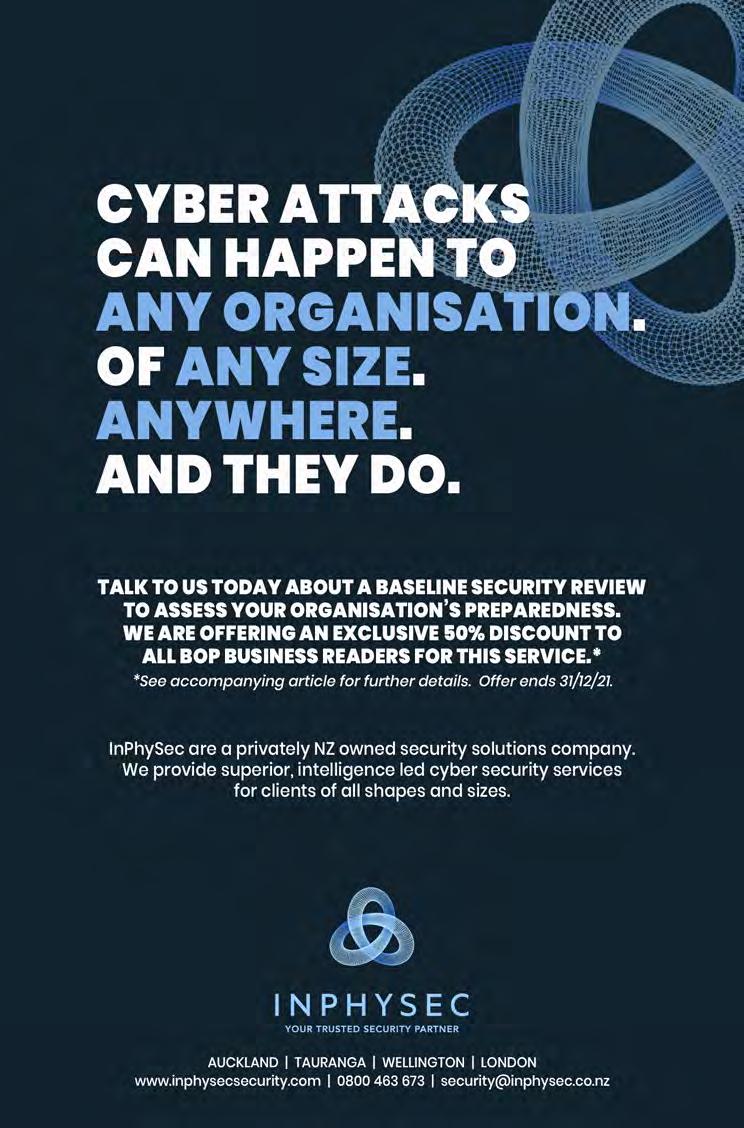

any business broker. Mostly though, it’s fear. Business owners have heard some horror stories or had one themselves.
We always advise companies to find out what a provider is like to work with and hear that things don’t always go to plan. It’s the hard work companies put in that make their transformations a success; their partners are there to support them in the areas they don’t have expertise in.
WHERE SHOULD YOU START?
Work out what process or system is causing you
the biggest headache, then get some help to determine if that is the problem. Many advisors have experience across many industries, so see common issues. Some issues might not be in the place you think they are, so having a second pair of eyes can help clarify the issue.
Decide you want to solve a problem, and work out how much that problem is costing you. Often, a problem is costing you much more than you can easily quantify.
These problems are worth solving first. Then you’ll find a string of related problems that can be solved at the same time.

InPhySec is a security solutions company that delivers superior, intelligence led cyber security services to protect your sensitive data and information. We believe that intelligence is our greatest weapon and our client’s greatest defence in the fight against cyber crime.
We offer a broad range of security services including security reviews, policy consultation, managed security services, digital forensics and incident response. Our clients are diverse and include some of the country’s largest government departments, commercial enterprises and SMEs. We are highly regarded for our incident response services and have responded to some of the country’s largest attacks such as the recent NZX DDoS attack.
The collective skillset of our experienced, passionate and highly trained team and our commitment to working with only the best in market technology partners, results in the delivery of the most comprehensive,
specialist and unique cyber security solutions both here in NZ and globally. We are privately, NZ owned and proud of our no compromises approach.
We would like to offer all BOP Business readers an exclusive discount on our technical Baseline Security Assessment service. The assessment requires installing a security agent that monitors for 30 days. This is a comprehensive review of your endpoints (servers and user devices) current security posture, risk position and resulting recommendations.
We are offering BOP Business readers a 50% discount on this service, which is usually valued at $6,000*. Please email us at security@inphysec.co.nz and quote ‘BOPBusiness offer’. One of our team will be in touch.
*Offer valid until 31 December 2021

FRIDAY 16 JULY
TRUSTPOWER ARENA








Trustpower Baypark is living up to its reputation as the Bay of Plenty’s Hub of Entertainment as we head into the colder months. This winter we have a calendar that is full of events for the whole family to enjoy.
Project 2021
PROJECT is a Hip Hop Crew Dance Competition for youth who have a passion for Hip Hop Dance. This event will allow young people to engage in creative expression in a supportive and positive environment that encourages participation and enjoyment. Participants may come from throughout NZ for the two day event on June 5 & 6 to battle it out for over $5,000 in prize money.
A night to celebrate our creative ākonga, Showquest is a nationwide performing arts competition and a platform for youth voices to be heard. Be amazed by original stage performances combining Art, Music, Dance, Drama, Culture & Technology. Students design, produce and perform these stories in a powerful night of celebration and recognition from their community. Young designers will follow the performances with a show-stopping Toi wearable art showcase.
Watch friendly inter-school rivalries heat up as tamariki explore the issues that are important to them. Join friends and whānau in supporting local emerging talent on the big stage June 9! (www.ticketek.co.nz).
Don’t miss the Bay of Plenty Armageddon Expo event on June 12 & 13 at the Baypark Arena for its biggest gaming and interactive experiences yet. With special TV and movie stars
beaming in virtually including guests from Smallville, Supergirl, Star Trek TNG, Supernatural, The Mandalorian, Doctor Who, Battlestar Galactica, Naruto, Rick and Morty and more!
Check out the incredible gaming displays including Virtual Reality, Just Dance Disco arena, huge PC and console area, airsoft, amusements and more. With heaps of collectibles, exhibitors, artists, and designers, this is THE biggest Armageddon Tauranga event yet. (www.iticket.co.nz).
Junior Tough Guy & Gal Challenge
So you’re tough, but are you tough enough to take on the 1-day Junior Tough Guy and Gal Challenge?
This is a chance for primary and intermediate aged kids to get involved in New Zealand’s biggest mud run series in a version tailored especially for them.
The Junior Tough Guys and Gals will take on a 1.5km or 3km muddy obstacle course consisting of swamp crossings, a spider’s web net climb, crawl under obstacles, beautiful native bush trails, tunnels, hurdles, a climbing frame, water crossing and not to mention, mud, mud and more mud.
Held on June 15, all competitors will receive a special finishers medal for taking part (www.eventpromotions.co.nz).
Devilskin & Kora
NZ musical legends DEVILSKIN and KORA band together to Co-Headline a nine-date winter tour across the

country, landing in Tauranga on June 18.
This winter tour will see an epic accumulation of songs that put these bands on the map, tracks like Kora’s infamous Pop Your Bubble, Drop Dead Killer and Carolina and DEVILSKIN have a host of songs from their three #1 albums including crowd favourites like Voices, Pray and Start A Revolution
These two iconic Kiwi bands will join forces for a must-see tour promising big songs and a formidable live energy that is not to be missed!
Don’t miss this explosive tour with two of New Zealand’s hottest live bands (www.eventfinda.co.nz).
The Seriously Good Food Show
Are you looking for some culinary inspiration? Celebrate your love of all things gourmet with food and beverage vendors, craft beer, wine,

and food trucks at the 2021 Seriously Good Food Show
With over 120 exhibitors from all around New Zealand, you are guaranteed to find new and exciting products to motivate your next dish or creation.
Sweet or savoury, devour the Seriously Good Food Show at Trustpower Arena Baypark on June 26 & 27, 2021. Door sales only.
The Tauranga Gala Dinner
Howzat! International cricket icon, Brendon McCullum, is gearing up for a smashing night out at the ninth annual Tauranga Gala Dinner on 16 July.
Captaining a stunning evening of entertainment, McCullum will be joined by renowned sports broadcaster, Scotty Stevenson, with national treasures Jackie Clarke, Tina Cross and Taisha Tari supplying incredible live performances with
their sensational group, The Lady Killers.
This year’s event will be a spectacular night of wining and dining, insight and entertainment, and locals and legends.
Get up close and personal with one of New Zealand’s most celebrated cricketers, be enthralled by some of our most heralded singers, and revel in style with your clients, staff and friends for a much-deserved night out (www.taurangagaladinner.co.nz).
Premier Venue
Trustpower Baypark is Tauranga’s Premier Venue for conferences, meetings, entertainment and exhibitions. Offering a complete package in one convenient location that features state of the art meeting rooms, in-house catering, audio visual services, professional conference organiser (PCO) and marketing/promotional services.
BBN’S GUIDE TO NEW PEOPLE AND NEW ROLES ACROSS BUSINESS IN THE BAY
To feature in New Appointments email us at new.appointments@bopbusinessnews.co.nz
As organisations in the Bay of Plenty bounce back from the effects of Covid-19 some of the region’s largest and most important groups are gearing up with new executive appointments. Please contact us if your organisation has personnel changes you would like to share.
A new chief executive officer has been announced for Western Bay of Plenty District Council
John Holyoake will take the role of retiring chief executive officer Miriam Taris, appointed to the role in 2014.
John is currently chief executive of the Tamaki Regeneration Companythe largest urban regeneration project in New Zealand, a role he has held since 2015.
Previously, John has worked for Serco NZ, Housing NZ and Department of Corrections in senior leadership roles.
Western Bay Mayor Garry Webber says John’s appointment reflects Council’s anticipation of Central Government’s well-signalled national reforms of Three Waters and the Resource Management Act and the desire to be ready for the changes.
“John combines considerable experience in the public and the private sectors with leadership of large-scale projects and strong relationships with government, agencies, and large stakeholder groups.
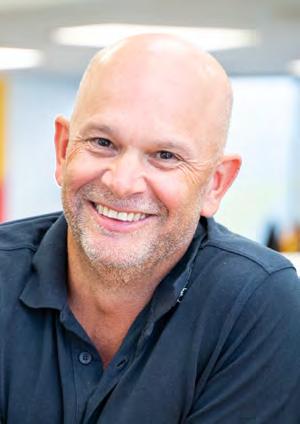
Priority One has welcomed two new Young Professional Directors to its Executive Board in May.
Christina Finlayson and Laura Murphy were selected from a strong group of applicants and will join the Executive Board for 12 months.
“It’s great to continue the Young Professional Director Programme this year,” says Priority One Chair Simon Clarke.

John says, “I’m looking forward to leading the Western Bay through this period of change and the opportunities that this will bring for the Council and the communities it serves.”
“Council looks forward to working with John to ensure Council continues to build on its reputation for proactively working with, and getting to know, its communities and stakeholders across the region.”
We know this land like the back of our hand – which means better outcomes for you.
Our vast local knowledge and experience is why we are one of the leading land development and land utilisation consultants in the Bay of Plenty. Every day we exceed expectations for our valued clients, delivering solutions that have a positive outcome for the places and communities that they, and we, call home.
Your local land experts
“Christina and Laura are already standouts in their fields, we look forward to having them around the board table. Ensuring that Tauranga is an attractive place for talent is important to this economy, the viewpoints that our Young Professionals provide will help inform our talent strategy.”
“I’m passionate about the future of Tauranga and its prospects for businesses, the community and in particular young people living and working here,” says Laura, a Solicitor at Holland Beckett.
Christina, a Digital Product Owner at Ballance Agri-Nutrients

shares, “I’m grateful for the opportunity to join an organisation that cares deeply about the sustainable growth of our city. It is such a privilege to develop my governance skills, learning from local business leaders.”
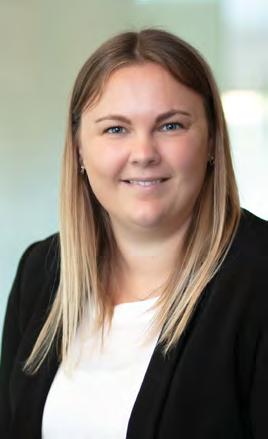
The Young Professional Director Programme was started in 2020, with the view to providing Tauranga’s Young Professionals with governance experience, and Priority One with a diversity of thinking around the board table.
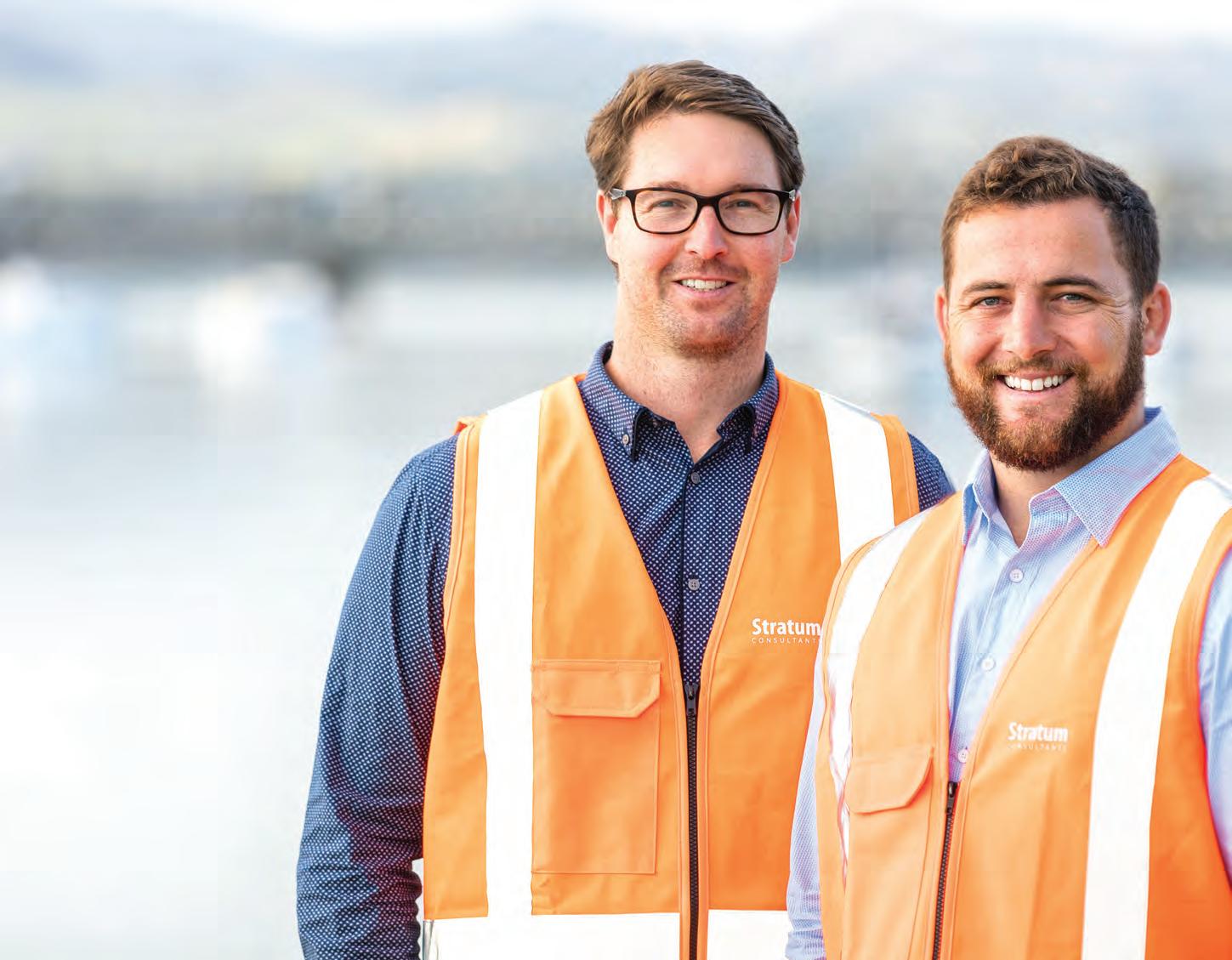

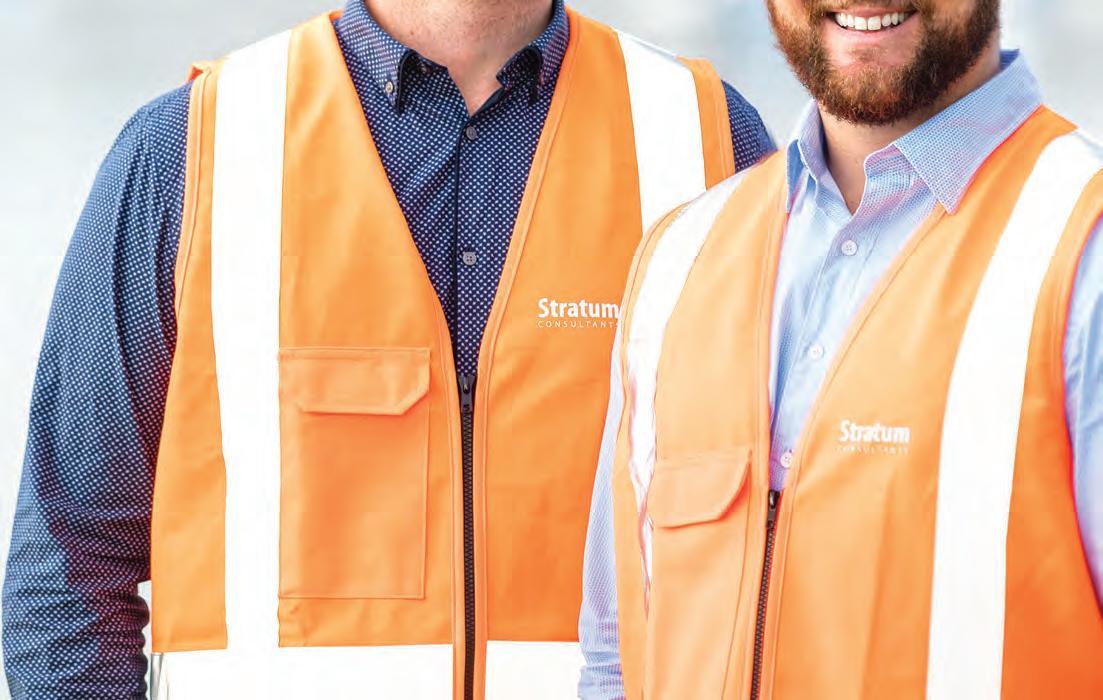
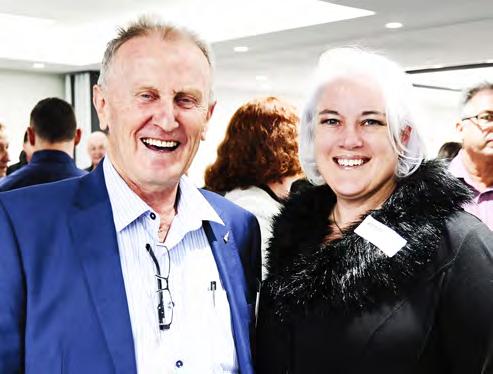
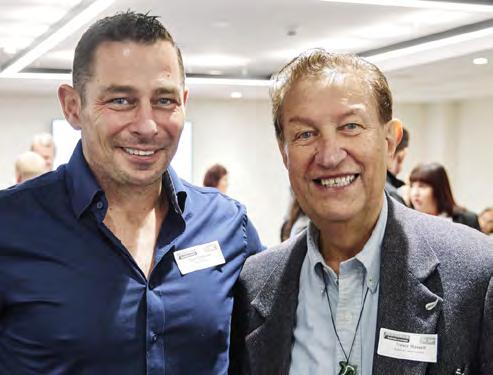
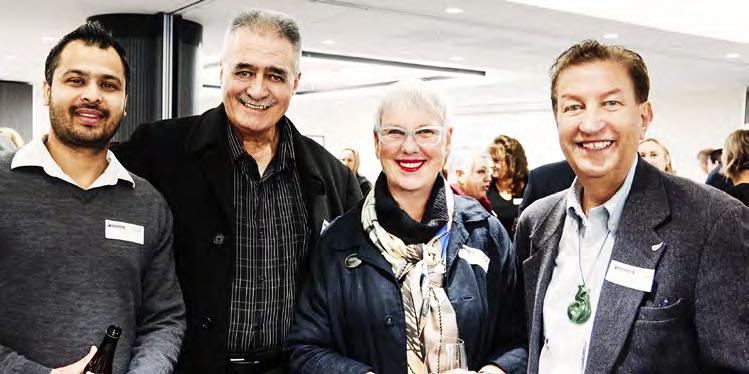
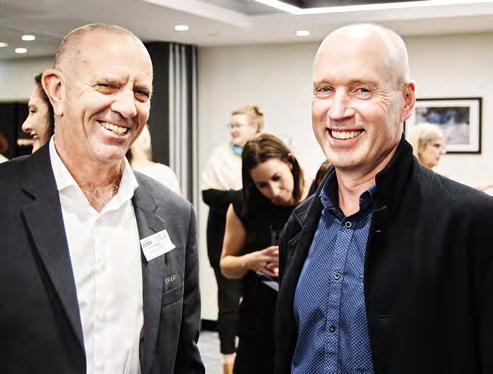
1 4 6 9 3 7 8 2 5 10
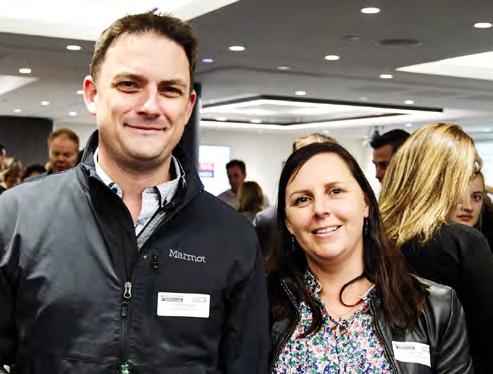
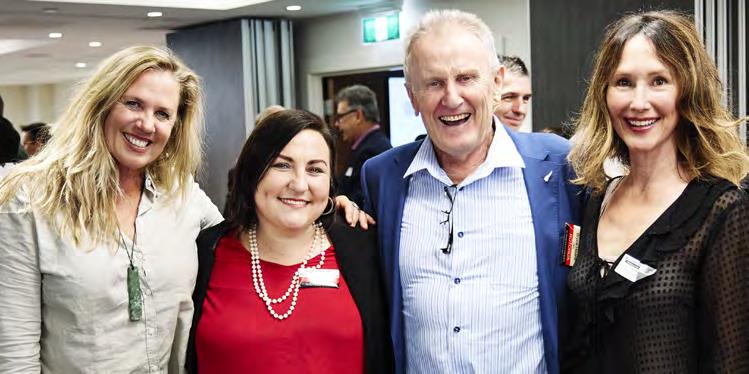
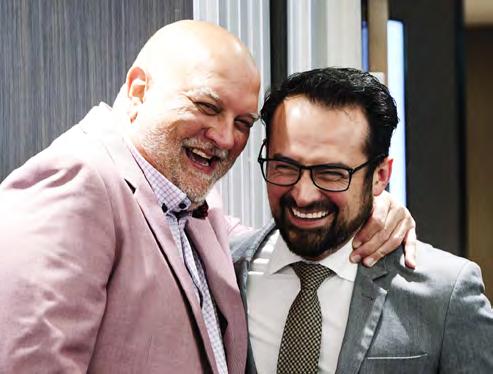
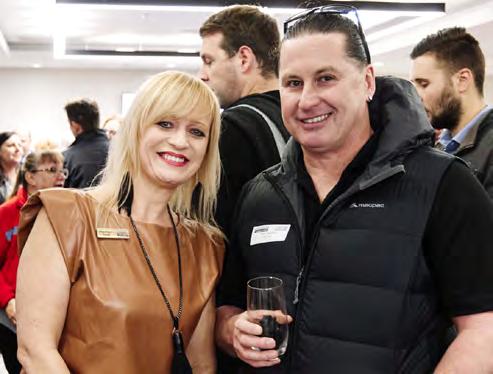
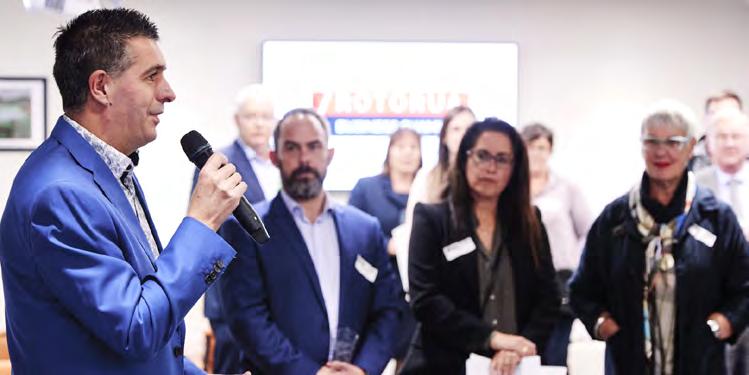

Jon Richardson, a famous UK comedian, once said “all relationships end, either one of you leaves or one of you dies” and that is true in business too. But sometimes the relationship can outlive its benefit for both parties. I will give an example of this that I have come across in the construction industry.
Abuilder and an electrician start working with each other soon after starting their own businesses. They started doing mainly renovations for a few years and business was good.
Then the builder was approached by a group home builder franchisee about submitting a quote to subcontract to them. Eager to land a large client and knowing several companies were quoting against him, the builder went in with a very competitive price and won the contract. Naturally, the builder asked his electrician friend to work with him and they both hired staff, purchased equipment and got ready for the influx of work.
Around six months into the contract the group home builder was paying payment claims late and would always come up with an issue that needed remedying on the day the payment was due, in an apparent attempt to delay the payment.
The electrician had also heard from some of his electrician friends working at other businesses that the franchisee had outstanding accounts with
several of them from before the electrician and the builder started working with the group home builder.
The electrician relayed this information to the builder and expressed his concern given the late payment history.
The builder decided to ignore the information and agreed to build the next two houses for the group home builder.
and told the electrician that if he refused to do the work then the working relationship was over.
The builder called the group home builder, and they assured him that they were solvent and did not know of any creditors that were unpaid.
Three months later, the group home builder franchisee was in liquidation, the builder was an unsecured creditor owed $50,000 and the electrician was back to doing higher margin renovation work.
Some of the best operators that I have worked with have regular meetings with both key suppliers and major customers to ascertain that they are on the right path and have complementary plans for the future.”
However, when he asked the electrician to provide services, he refused stating that he had heard a creditor was planning to put the group home builder into liquidation.
The builder became angry


Often people in business fail to take regular audits of their relationship with key suppliers and customers. And when this happens there is a real risk that one business could follow the path of the other into areas
> BY NICK KERR
Nick Kerr is a Business Advisor at NJK Advisory Ltd.
He is also director of International Private Investigations Ltd. Nick can be reached at nick@nzipi.com
where they would otherwise not tread or one could end up feeling abused or hindered by the other.
Some of the best operators that I have worked with have regular meetings with both key suppliers and major customers to ascertain that they are on the right path and have complementary plans for the future.
This way there is plenty of time to make subtle changes to either ensure alignment and synergy or to make allowances for customer and key supplier replacement where needed without causing major business disturbance basically no one is ever surprised by something they have planned for. Just a thought.
NB: This will be my last column as an Area Manager of EC Credit Control. This month I move my focus to NJK Advisory to focus on providing debt prevention and specialist business advice. My sincere thanks to all of my clients with EC over the past 14 years and I wish all of you every success for the future. Thanks.

There’s a brightness about the future right now. The Covid-19 vaccine is being rolled out in many countries around the world and businesses in industries that could see only darkness last year are starting to spring back to life. But is your business ready? If your business downsized or pivoted to survive, how easy will it be to ramp back up or return to some of the core business you relied on prior to the pandemic?
Gearing back up can take time and businesses that are too slow off the mark risk missing out on opportunities.
This is precisely the challenge faced by many tourism operators, which will be looking to attract Australians once again now that the trans-Tasman travel bubble is in place.
Hospitality and events businesses are in a similar boat and will be trying to adjust their marketing messages back towards the joy of socialising and spending time with others.
Exporters face an extra layer of complexity because the Covid-19 situation differs by international market. It’s not easy, but by focusing on the following key areas you will improve your chances of catching the Covid recovery wave early.
Update your messaging
The way we sell our products or services needs to change
once again. Most businesses shifted their messaging during the lockdown last year, whether it was to appeal to New Zealanders desire to buy locally or to remain relevant at a time many people were stuck at home.
With travel bubbles popping up and people re-emerging from their homes in some countries, it’s time for businesses to begin capitalising on the newfound hope many have. We may not see a complete return to what we saw before Covid-19, but some industries are experiencing a resurgence as people overseas seek to make the most of the freedoms success over the virus can bring. Promotions can once again celebrate getting together with friends and family to enjoy good times together.
Optimise online stores
There has been a sharp increase in the number of people shop-
ping online in the past 18 months as national lockdowns and fear of the virus spurred many people to change their behaviour.
As a result, having a well-presented and easy to use online store is now critical. If you haven’t already, it’s worth exploring e-commerce options. And if you already sell online, then now is a good time to ensure is the buyer experience is seamless.
Make sure you have high-quality photos and engaging product descriptions. Ensure payment and delivery is straightforward. Take steps to ensure you can gauge the success of your marketing activities and measure conversions.
Country and regionspecific marketing
For exporters, it’s more important than ever to have your finger on the pulse of each of the key markets you are selling

> BY JAMES HEFFIELD
Director of Bay of Plenty marketing and PR consultancy Last Word. To find out more visit lastwordmedia.co.nz or email james@lastwordmedia.co.nz.
into. The rebound from Covid19 is vastly different depending on where in the world you are, and a message and product that might be well received in one country might be insensitive or taboo in another. You wouldn’t dream of promoting a concert at a stadium in India right now, but the appetite for events that draw crowds will soon be greater than ever in places like New Zealand, Australia and the UK. It’s critical to tailor digital messaging by country. Now, more than ever, one message used universally to promote your products in every country is not enough. The same goes for your marketing budget. Be
prepared to regularly increase and decrease your spend in each country you target as the in-country Covid-19 situation changes.
Get your resourcing and systems right
Your marketing promises will be meaningless if you don’t have the systems in place to back them up. How fast can you ramp up and hire staff if opportunities arise? How easy will it be to increase production or get new stock in quickly?
It’s a good idea to get employment contracts in order and make sure you know
where you will advertise positions. Put some thought into how much inventory you will need to hold – If you only hold a limited amount of stock, then you will need to plan ahead more because of the longer delivery times resulting from recent disruptions to global shipping. The recovery from Covid19 won’t all be plain sailing for businesses, as the recent spike in cases in some countries demonstrate. But if the vaccines continue to be effective and businesses time their runs right in each market and country they sell into, then the light at the end of the tunnel may not be so far away.
As employers we are currently facing challenging times. We navigated our way through the trials that 2020 brought, with luckily fewer job losses than estimated and since then, business is seemingly booming.

> BY KELLIE HAMLETT
Talent ID are Recruitment Specialists and can support you through your recruitment process. Please feel free to talk to us about this by calling 07 349 1081 or emailing kellie@talentid.co.nz
ut how can business thrive and grow if the demand vs supply for staff is not met. Over the past 18 months there have been several employment-related legislative changes announced, rising compliance costs, and now skill shortages are becoming apparent across almost all sectors.
Skill shortages are a very real business risk in today’s climate. Businesses are busy – many more so than ever before. Wait times for services and trades are lengthy – is this our new norm? How can a business grow and prosper if they can’t find quality people to fill key roles. With our borders being closed and the supply of migrant workers limited to those who are already in the country, the demand for workers is high. With an increase in
vacancies and a decrease in job seekers, as employers this is one of our biggest challenges for this year and beyond.
Taking a regional hit
The skill shortages within the labour market are not only affecting the major cities, but are very real right here in the Bay of Plenty – and potentially worse. The regions tend to get hit hardest in times such as these. Shortages are being experienced across a broad range of industries and sectors and are no longer contained to technical roles.
In a candidate-driven market, becoming an employer of choice is one way in which you can ensure that you are at the top of candidates list of company’s they want to be employed by. This can be achieved by developing your
employer “brand”, which will help you to attract top candidates to your business and differentiate your company from your competitors. This can help you to attract, recruit, and retain the best available talent, which ultimately will have financial benefit and payback for your company. It’s walking the talk, providing genuine and real benefits – “treating your valued employees more like your valued customers” – your vital resource in sustaining your business and its future prosperity.
The real costs of replacement
Having a robust reputation as an employer goes beyond attracting the best employees to your vacancy, it will provide positive opportunities and
The skill shortages within the labour market are not only affecting the major cities, but are very real right here in the Bay of Plenty – and potentially worse.”

financial advantages to your company.
Employees that stay with your company can be trained and developed, retaining essential skills and knowledge.
Do you know the real cost of having to replace an employee in a key role who has been with your company for several years and is leaving to work for a competitor?
Some of the ways in which you can look at enhancing your employer brand include adopting Equal Employer Opportunity practices, community involvement and engagement, flexibility with work options,
health and wellness policies, environmental and sustainability policies, providing a point of difference as an employer from your competitors, real benefits, genuine commitment, and care of your employer brand through company integrity and leadership.
Recruitment is about attracting the most talented and capable people to your role, therefore any positive messages and demonstrable behaviours that you can communicate about your employment practices may give you the edge you need to become a preferred employer in the eyes
of the candidate. It goes beyond just the attraction of candidates, also encompassing retention and development.
Do you know what your employer brand is – how your business is perceived by those not in the marketplace but those who are already working for you.
Starting in-house with an initial employee survey could be the first step in researching current perception and what you might take on board as feedback to improve your employer brand for the future.



















$3,450,000



